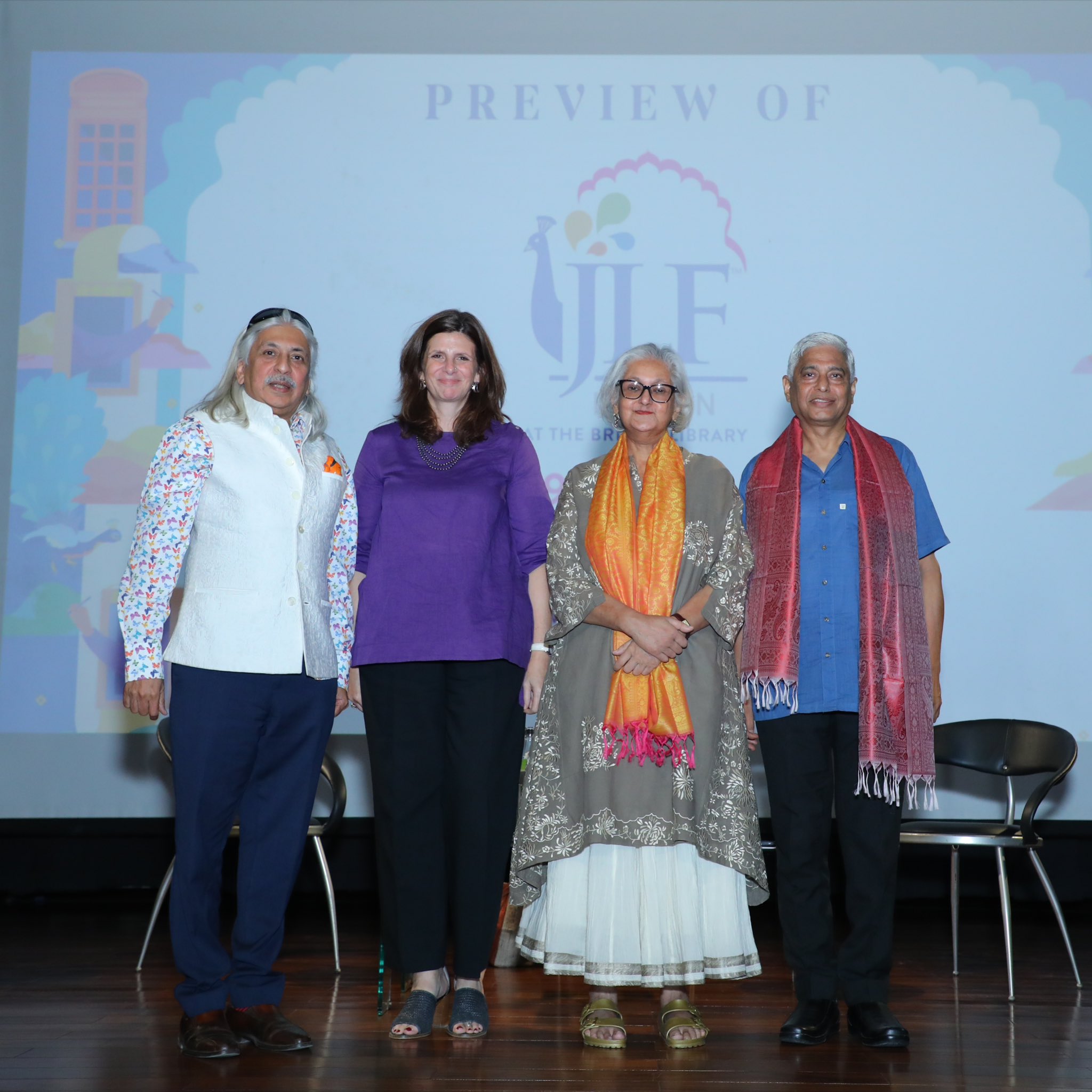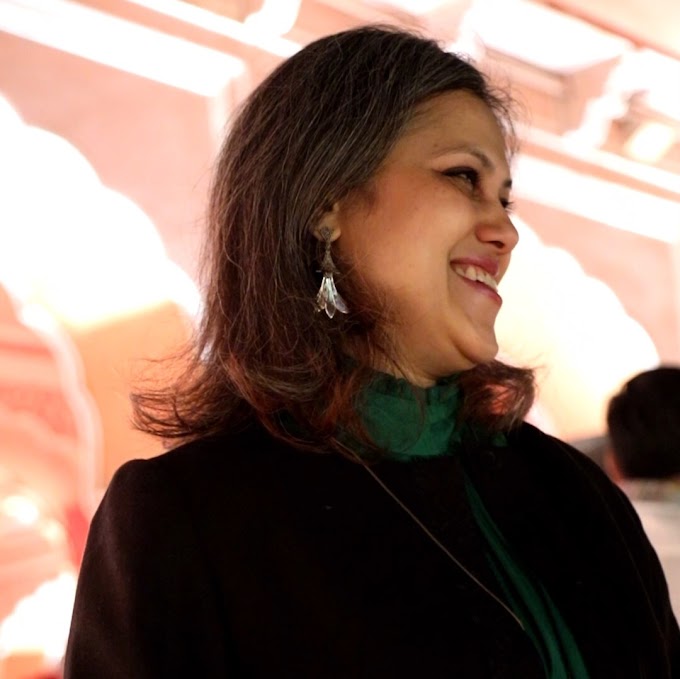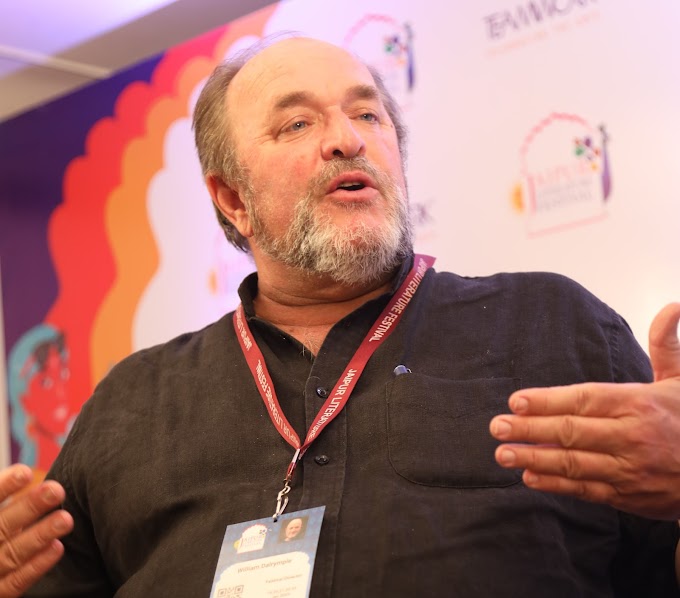On June 7th, 2024, the Jaipur Literature Festival (JLF) will return to the British Library in London. As a journalist who has covered the festival for the past decade, I can no longer stand silent.
JLF’s practices are not just undermining Indian literature but are now poised to corrupt literary standards worldwide with Britain being its first stopover this year. The festival’s strategy is insidious. It starts by inviting the biggest prize winners and leverages their fame to gain traction and legitimacy. These literary heavyweights are then placed in conversation with a select few authors whom the festival platforms regularly.
This carefully orchestrated process has, in the Indian context, transformed the festival into a kingmaker. It prioritises the creation of literary superstars, with close allegiance to the family, friends and business beneficiaries of the festival organisers, over genuine literary celebration.
However, this is merely the beginning. In India, the festival invites about 200 speakers, including writers, scientists, and journalists, ostensibly to present a facade of diversity and inclusivity. In reality, these individuals are mere fillers. They are used to pad the programme while the festival’s focus remains squarely on a handful of chosen authors or its lobbying interests.
This tokenistic inclusion and diversity mask the festival’s true intent to monopolise the literary stage and suppress genuine literary talents. In the list of its London speakers, including several heavyweight authors, the festival is cunningly hiding its concerted attempt to build fake literary superstars. Anita Anand, who co-hosts a podcast with festival co-director William Dalrymple, will be in conversation with Mishal Husain in session number 22 “Broken Threads: Partition Stories”.
Anybody who has closely followed South Asian literature will immediately pronounce a dozen names who have spent their life researching and writing on the topic at hand. But promoting Anand is directly linked to the success of Dalrymple’s own podcast.
This writer hopes Dalrymple, a very hard-working author and avid historian, realises that he is a beneficiary of the very evils – anarchy and empire – that he castigates in his writings.
Indian diplomat Vikas Swarup, whose debut novel became an international sensation with the Oscar-winning Slumdog Millionaire many years ago and has a new offering coming, will be participating in as many as three sessions in London.
At the preview of the festival in Delhi last month, the festival organisers shamelessly posed with Swarup, and used his photograph in the press release sent out to the media. His wife's business interests can be traced to one of the festival’s lavish editions. The goal is to spread its empire by cozying up to the rich and powerful, even if it means bleeding the literary discourse with a thousand cuts.In a session on translations, the festival will platform Mohini Gupta, who is yet to make a single notable contribution to the cause of translations, and is closely linked to the business interests of festival co-director Namita Gokhale.
Gokhale, the epicentre of literary corruption in India, was given about 350 social media mentions by the festival last year while most other participating authors, including heavyweights, barely find one or two mentions. She has faced severe criticism back home in India and has thus been cut to size, for a short while, by the festival.
And then there is, among many others, the curious case of Bee Rowlatt, the cultural programmer at the British Library.
She has been platformed repeatedly at the festival’s India edition, in multiple sessions in each edition, along with multiple social media and press mentions. This is part of the festival’s concerted effort to project a larger-than-life image of Rowlatt.
May god bless the United Kingdom if this is its supreme literary and journalism standards because my folks in India have been made to believe so by this festival that is drunk in a cocktail of power and greed!
The festival’s repeated platforming of personalities with little to do with the literary world undermines the credibility of its programming. Some of the star speakers of its India edition have not authored even a single book, while others have written one or two many years ago.
The sponsors and hosts of JLF, such as the British Library, must critically evaluate the festival’s practices and the list of authors it presents. They need to ask whether the festival is truly serving the cause of literature or merely expanding its business interests. The monopolistic tendencies of the festival must be countered to ensure that it remains a platform for all voices, not just a select few. If not, JLF should be denied venues and sponsorships from public funded entities.
The literary community must be vigilant and resist this encroachment. Critical evaluation of its themes, speakers and hidden agendas, including but not limited to international lobbying, by the literary community and journalism fraternity is long overdue.
For the festival organisers, it is a big time to rethink and introspect. They need to assess the extent to which their foul-play, stinking endeavour to create fake literary superstars, erode a level-playing field and platform individuals with close allegiance to their family, or friends or business beneficiaries have corrupted Indian literature.
They should also stop shifting gears and lobbying; till yesterday they enabled a bigoted and authoritarian regime in India and just as the 2024 Indian election results were announced, they cunningly became democratic and began celebrating democracy.
(Saket Suman is an independent journalist and author of The Psychology of a Patriot. He previously headed the arts/books/culture verticals of India’s largest independent newswire)




